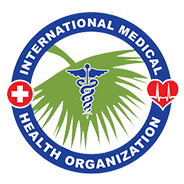
Manipay Hospital Equipment
The Need
In 2015, IMHO Canada received a project request for hospital equipment for Manipay Divisional Hospital, Northern Province. This hospital serves a large number of patients from Manipay, as well as various surrounding towns such as Anaicoddai, Chavatkaddu, Kakkaithevu, Mulli, Navaly, Sandilipay, Chankanai, Sithankerni, Karainagar, Moolai, Suthumalai, Kokuvil and Thavady. With the limited health care facilities in these communities, Manipay Divisional Hospital provides a primary health care facility for these populations. The number of patients that this hospital serves daily has almost doubled in the past 1 to 2 years, expanding from 250 to almost 400 patients. Although Manipay Divisional Hospital is a government-sponsored institution, it does experience shortages in equipment and instruments used for basic tests. The funding required to meet the hospital’s medical equipment needs were as follows:
INSERT TABLE WITH EQUIPMENT FUNDS HERE!
The Resources
The Sandilipay United Society of Canada offered their support on this project to help raise funds for the Manipay Divisional Hospital. Within just 6 weeks, the organization was able to help raise enough funds to provide the hospital with both a hematology analyzer and a urine analyzer. The Sandilipay United Society of Canada was able to contribute the majority of the funds for this project and their support has made a lasting impact in the communities of Sandilipay and its surrounding villages.
The Solution
In order to meet the needs of Manipay Divisional Hospital and those living in its surrounding communities, the funding for this project has gone towards purchasing the necessary equipment for detecting the diseases that are most common to these regions. One such disease is dengue fever, which is prevalent throughout the tropics and subtropics, and is caused by a family of viruses that are transmitted through mosquitoes. Diagnostic methods for dengue fever most often require a blood specimen from the patient and hematology analyzers are useful in testing blood samples for the disease. However, blood may not be easily collected in all cases. Especially for testing in young children or during an outbreak, the use of urinalysis is another convenient method for diagnosing dengue fever in patients. To ensure that all patients at Manipay Divisional Hospital have access to blood and urine testing facilities on site, IMHO Canada has been able to supply the hospital with both a hematology analyzer and a urinalysis machine. This facilitates the immediate detection of diseases like dengue fever, so that treatments can be administered to patients at the earliest opportunity.
The Impact
Reversed land degradation from war and migration in recent years.
Increased agricultural opportunities and sustainable living for underserved communities in the area.
# of people directly benefited
# of people indirectly benefited
The Impact
Major progress has been made in enabling essential health services and testing technologies on site for patients at Manipay Divisional Hospital. Previously, with the hospital’s limited access to basic testing technologies, patients would have their blood and urine samples collected and transported to another hospital in Jaffna to provide diagnostic testing. Families suffering from financial hardship and poverty in these areas could not afford the expenses of travel for testing directly in these hospitals, causing them to wait weeks or months to address their health concerns and risks of contracting prominent diseases in their region. Bringing this testing equipment and technology directly into Manipay Divisional Hospital through this project has allowed for basic testing directly on site, providing patients with diagnoses of disease at a much earlier stage.
Ensuring that patients receive adequate treatment at the earliest stages of disease onset has allowed for increased health outcomes across all of the communities served by Manipay Divisional Hospital. This project works towards the UN Sustainable Development Goal #3 - Good Health and Wellbeing. This goal is to provide the health care services required to ensure healthy living and promote well-being for everyone of all ages. These technologies will continue to benefit and enhance the quality of health care provided by the Manipay Divisional Hospital to Sandilipay and all of its surrounding villages.




